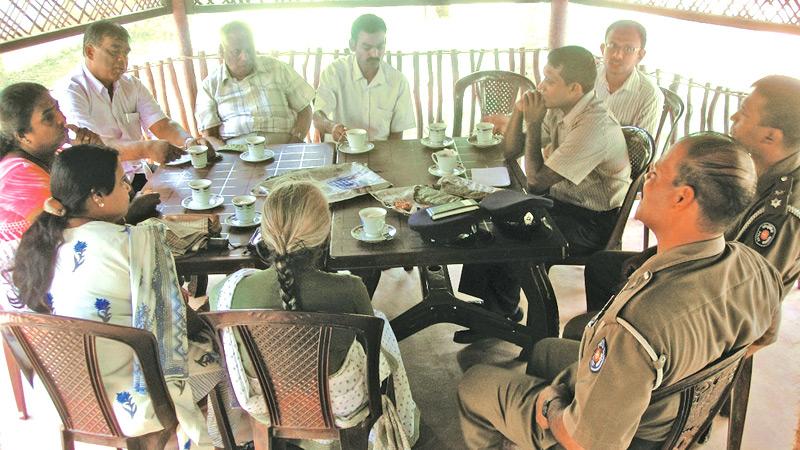
The primary function of the police is to protect the people and their properties. In addition, they are expected to maintain law and order and create an enabling environment for the citizenry.
To achieve an effective policing, it should be citizen-driven and service focused. There should be a cordial relationship between the police and the society/community. There are a few steps the police can introduce to achieve such a relationship.
One is the introduction of a Community Policing concept. It is an effective way of getting the people involved in policing, identifying problems and finding solutions. This would make the police proactive in crime prevention and other activities.
Sir Robert Peele, who served twice as Prime Minister of the United Kingdom, once said, “Police are the public and the public is police. “This means police is part of the community and so in performing as a police officer, one needs to be mindful of the human rights of the people he is serving. A police officer can legally use physical and even deadly force under certain circumstances in executing his or her duties but it must be done with caution.
Any action of a police officer can bring either commendation or condemnation. If professionalism is exhibited by the Police, the public would applaud them but if it is the contrary there would be a public outcry.
Recently there have been many mishaps involving some police officers which has raised public concerns about protecting the nature of the service. It is true that when there are police brutalities, they undermine the trust of the public in the service.
Community policing
The central goal of community policing is for the police to build relationships with the community through interactions with local organisations and members of the public, creating partnerships and strategies for reducing crime and disorder. Although community policing mostly targets low-level crime and disorder, it has proven that this can reduce more serious crimes as well.
Community policing is related to problem-oriented policing and intelligence-led policing, and contrasts with reactive policing strategies which were predominant in the late 20th century. It does not eliminate the need for reactive policing, although successful prevention can reduce the need for the latter. Many police forces have teams that focus specifically on community policing, such as Neighbourhood Policing Teams in the United Kingdom, which are separate from the more centralized units that respond to emergencies.
The overall assessment of community-oriented policing is positive, as both officers and community members attest to its effectiveness in reducing crime and raising the sense of security in a community.
Police neighbourhood panel
Another way of building police-public relationship is through police neighbourhood panel meetings. A group of about 10 people from each ward of an electorate hold a meeting with the police authorities of the area every quarter. It is called police neighbourhood panel meeting. Those taking part include our local council councillor.
This concept is successfully implanted in India. The following paragraphs explain how it works in India
Expression of views
Any citizen living in those wards can come, and express a view, or ask questions. Interestingly, sometimes at these meetings there are students from the local secondary school, who have sensible points to make, and are not nervous about making them.
There can be seven to ten different neighbourhood groups depending on the population. These meetings are worthwhile, and show that genuine efforts are made to take notice of what people wanted of their police service.
Everyone realises that resources are not unlimited; and, indeed in the present financial climate, they are likely to be reduced. Everyone appreciates, also, that there are some priorities that the police have to follow. To take an obvious example, they must investigate crime.
There are, however, many matters which are high on the list of priorities for particular wards. For example, one ward might project their concern about poor lighting in certain public areas allowing undesirable elements to move in. The police can discuss it with the relevant authorities.
The value of the panel meetings could be attributed to several factors. Above all is the fact that the inspector and the sergeant responsible for the policing of the area always attend the meetings, report honestly on what has been done since the previous meeting, and commit themselves and their team to following up the suggestions that emerge. Another significant point is that, generally, those attending to represent their communities come with a positive attitude. Inevitably, there are some who have manifest bees in their bonnet, and who try to use the opportunity to let them keep buzzing, but they are a minority.
A third factor is that they are very well managed. They are chaired by a former widely experienced police officer, who now, having retired from his policing job, serves as community engagement manager. He shows great skill in ensuring that everything on the agenda is covered, that everyone has the chance to ask questions or express views; and that the meetings end on time.
It might be argued that any meeting ought to be like this, so why go on about it. The fact is, that all too frequently they are not a bit like that. That is, of course, why people are often cynical about public consultation.
Harmony in relationship
When both police and people make a genuine effort to communicate, public consultation meetings turn out to be particularly fruitful. The gap between the police and public can be closed by employing the concepts of Community Policing and police neighbourhood panel meetings concept at the grassroots of the service.
The Police administration should also organise counselling, stress management and psychotherapy sessions for their officers on a regular basis. In addition, there should be capacity-building courses for their officers periodically on modern policing especially, on their relationship with the public.
We should consider introducing these two concepts in Sri Lanka with necessary changes.
